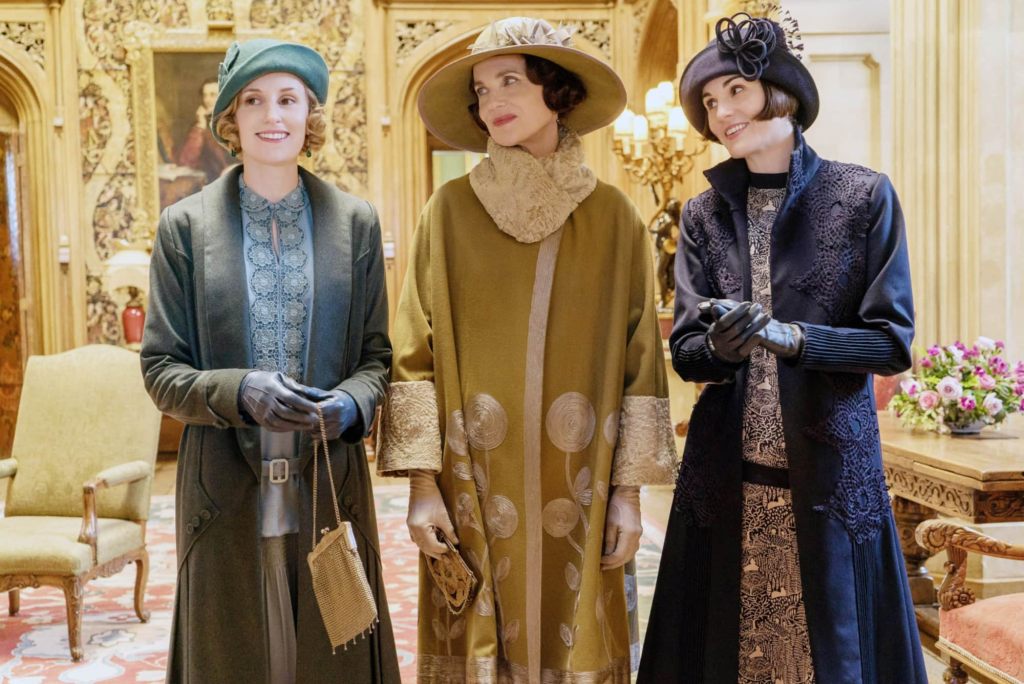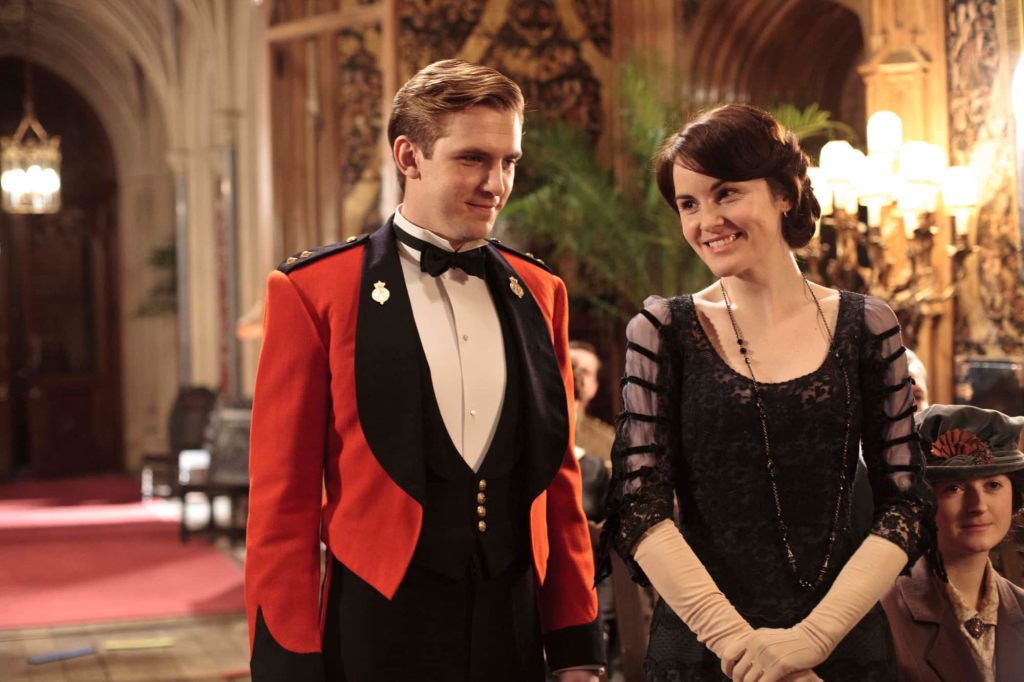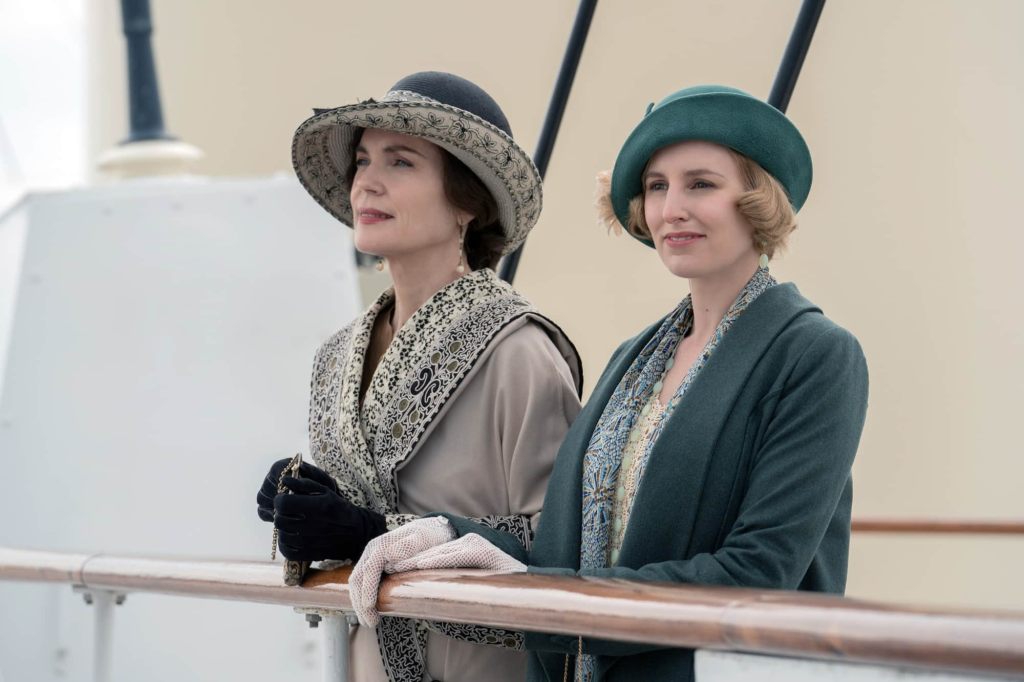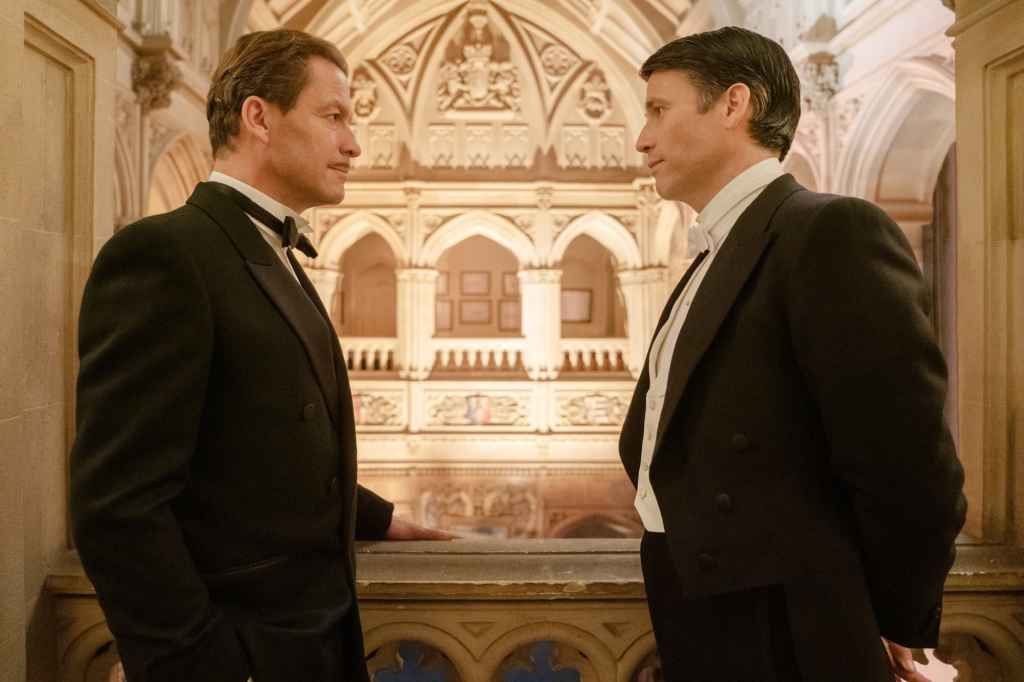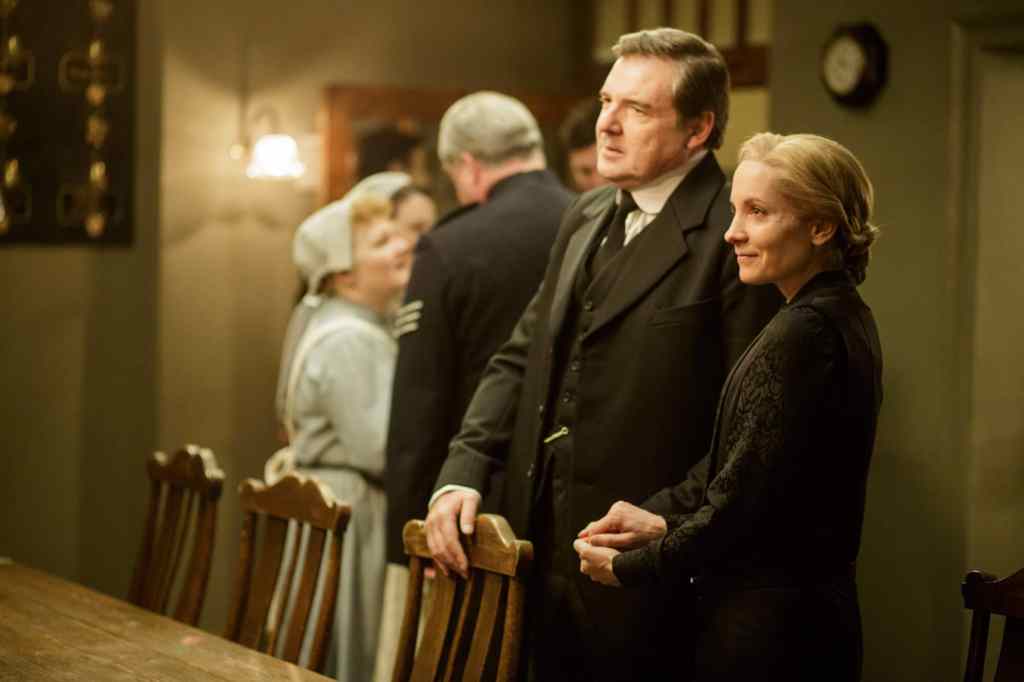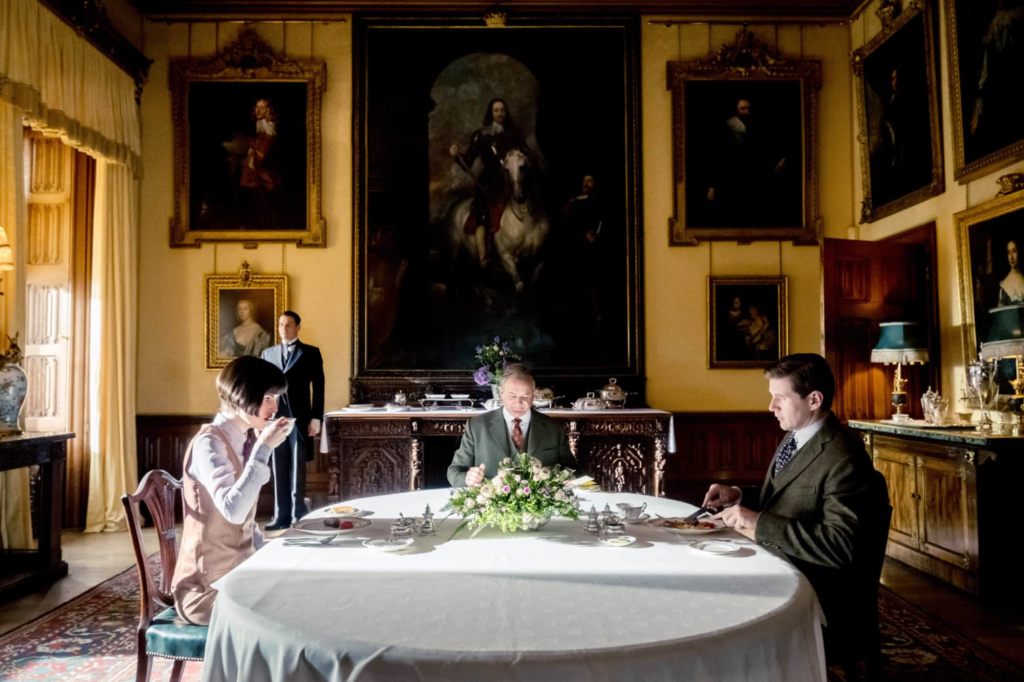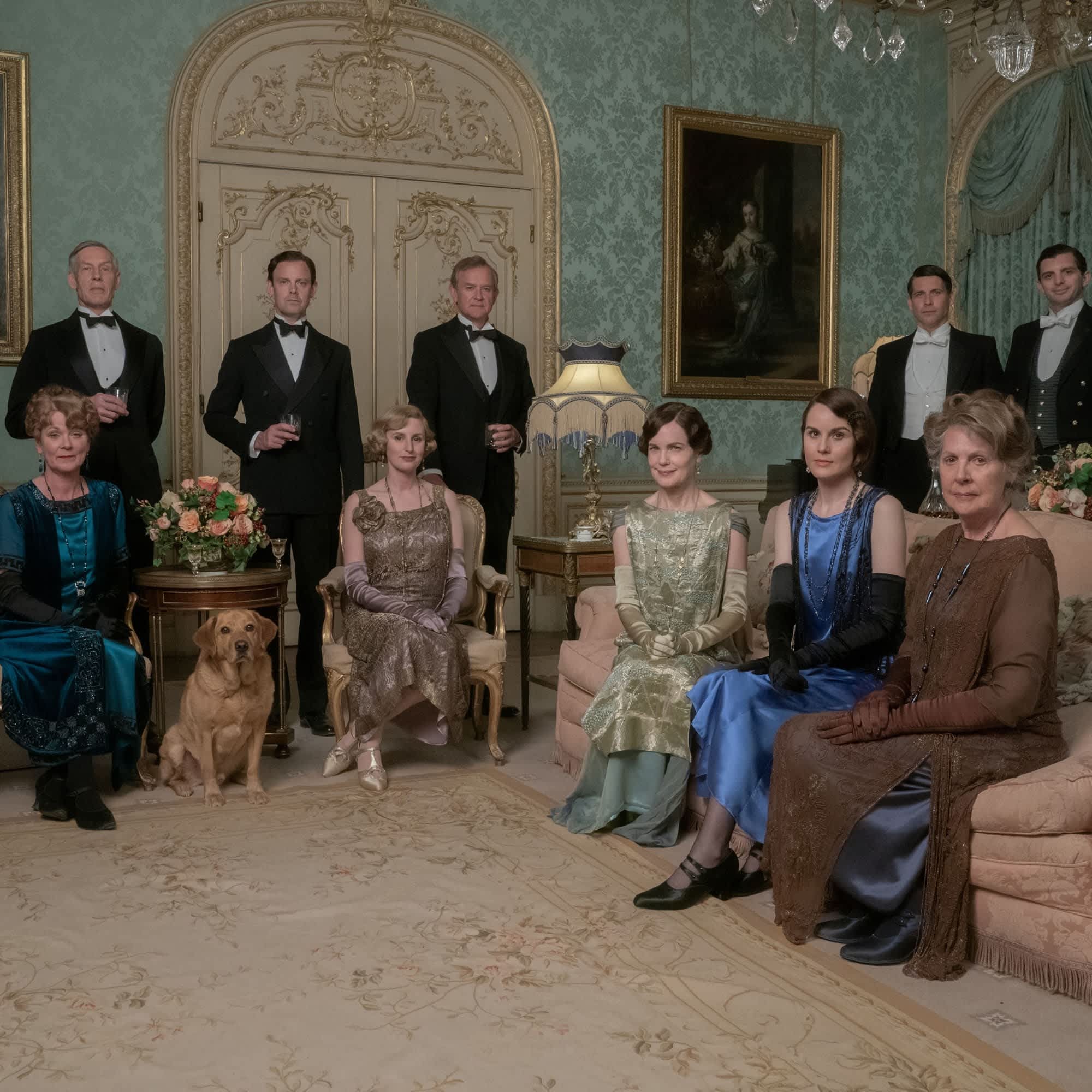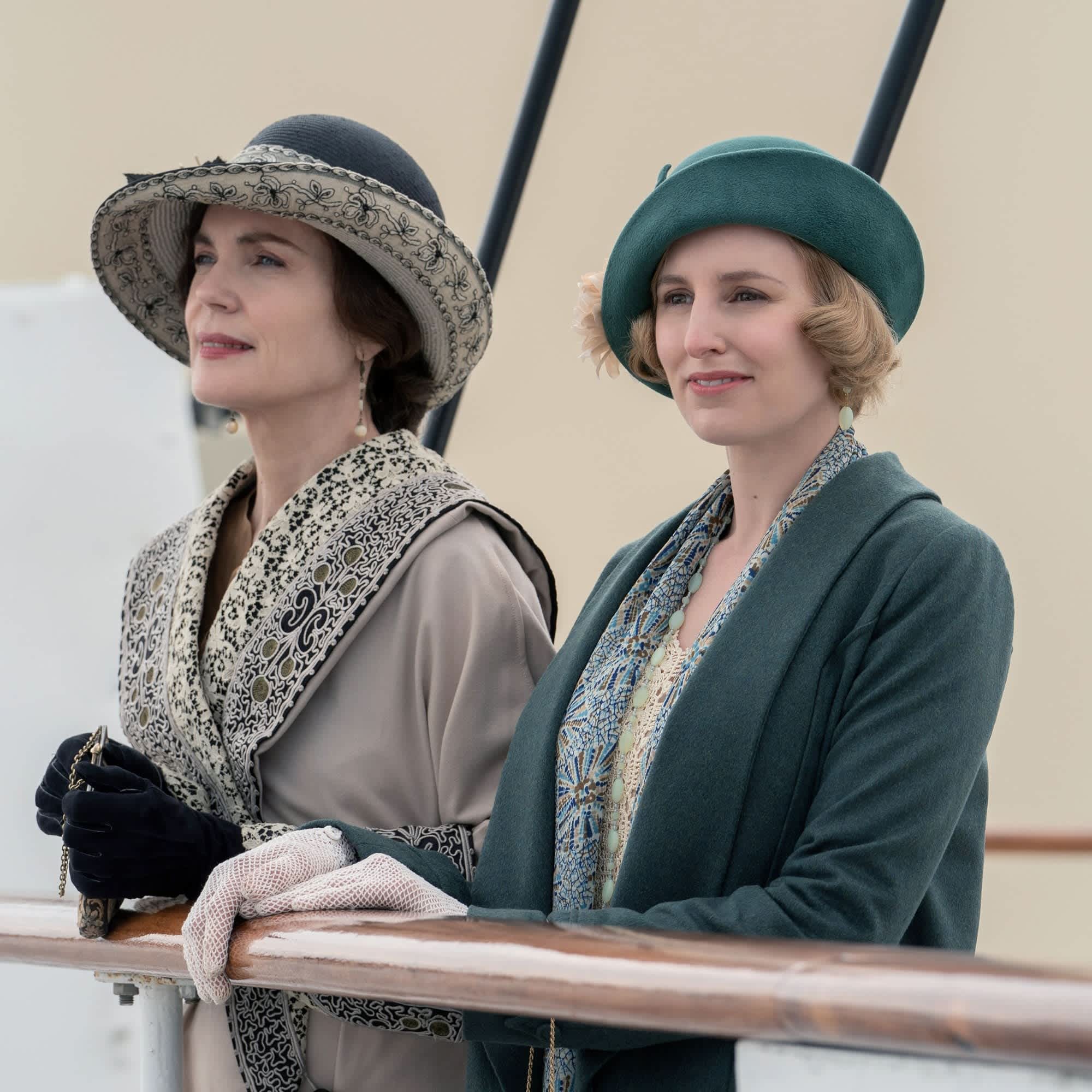
- POPSUGAR Australia
- Celebrity
- What Downton Abbey Gets Right (and Wrong) About 20th Century England
What Downton Abbey Gets Right (and Wrong) About 20th Century England

For many of us, Downton Abbey has taught us a lot about the ins and outs of the fading aristocracy in early 20th century England. How much of Downton is historically accurate, though, and how much of it is exaggerated for dramatic effect?
Throughout its entire run, Downton employed historical consultants and drew on the family knowledge of series creator Julian Fellowes. Even so, it’s a fictional series, with many minor and major “edits” to make a more dramatically compelling and relatable story. While some of those inaccuracies are minor (think linguistic quirks and slang that wasn’t popular yet), a few major elements of the show and movies are worth revisiting to see if they pass historical muster. So if you’ve ever wondered about how realistic Downton Abbey has been over the years, this is for you!
Did The King and Queen Really Visit Families?
The first Downton Abbey movie hinges on a surprise royal visit to Downton. This particular plot point is both accurate and inaccurate in different ways.
Royalty really did (and still does) visit people at their private homes sometimes, particularly members of the aristocracy or with leadership appointments. Downton historical advisor Alistair Bruce explained some of the ins and outs to Town and Country, revealing where Downton hewed close to history and where some creative liberties were taken.
Among the plot points that deviated from reality for the sake of drama: there would be no such thing as a “surprise” royal visit. Royals typically visited their close friends, rather than passing acquaintances (as the Crawleys are described), and with plenty of preparation. Other elements of the movie’s royal visit, such as the jam-packed schedule and the massive entourage, are more historically accurate.
Were Women Really Banned from Inheriting Wealth?
Women being barred from receiving inheritances seems like the stuff of an 18th-century Jane Austen novel, not of the 20th century. But the legal quandary that kicks off Downton Abbey‘s story is, in fact, based in historical (and present-day) reality. British peerages still follow male-preference primogeniture laws, with the exception of a few titles that have unique loopholes that allow them to be passed to female heirs. As recently as 2019, a bill to change these laws failed to pass in Parliament, although another attempt kicked off in 2021, according to Tatler. If a law like this passed, heiresses like Lady Mary could inherit directly, rather than being passed over for younger brothers or male cousins.
Intriguingly, these laws actually put the peerage behind the royal family! For royal heirs born after October 2011, absolute primogeniture reigns instead of male preference, meaning that daughters cannot be leapfrogged in the line of succession by younger brothers. Princess Charlotte is the first in the immediate succession to “benefit” from this: the birth of her younger brother, Prince Louis, did not affect her place in the line of succession.
Would Edith Have Been Allowed to Raise Her "Illegitimate" Daughter?
A major and ongoing plot in the later seasons of Downton involves Lady Edith’s illegitimate daughter, Marigold. Born from the one night Edith spent with her boyfriend Michael Gregson before he left for Germany, Edith covers up her pregnancy by spending several months in Switzerland with her aunt who knows the truth. Marigold is initially put up for adoption with a Swiss couple, but Edith winds up missing her daughter so much that she has her brought back to England and placed with a family on the Downton estate. Eventually, she wrangles it so that Marigold becomes a ward of the Crawley family, an open secret among their family, and she’s even able to essentially adopt Marigold and bring her with her when she gets married.
Heartwarming as it may be on screen, this would have been almost impossible in real life. Children out of wedlock were the kind of scandal that would ruin a woman’s life in the era of Downton, and a thin fiction like “adopting” the supposed child of a dead friend wouldn’t stop the gossip. If Edith had actually been married to Michael, that would have been one thing — widows with children were respectable — but as a legally single woman, she would have had few options.
Was the Aristocracy Really So Progressive Politically?
Downton Abbey isn’t really a show that’s explicitly about politics, but it makes it clear what the Crawley family’s leanings are: generally conservative, preferring the “old ways,” and favouring conservative politicians. This would certainly be in line with real aristocrats of the early 20th century, but there’s also quite a bit happening at Downton that’s almost unrealistically progressive.
The Crawleys treat their servants very well and even form friendships with a few of them — not something that would have happened, realistically. They also demonstrate a surprisingly progressive attitude when it comes to marginalised groups of the era. Unlike many aristocrats, they’re not antisemitic (partially explained by Cora having come from a wealthy Jewish American family), and they’re pretty chill about Thomas being gay. Again, while heartwarming to watch in the 21st century, it’s definitely a bit more of a modern lens.
Were Servants Really Allowed to Marry?
Another instance of modern values being dropped into a past century is the show’s attitude towards servants getting married. In particular, women generally did not work after marriage; as some of the maids in the earlier seasons note, they would be expected to leave service and become a housewife once they got married. In many cases, male servants would leave service upon marriage too, especially in the days when servants lived in the same house as their employers rather than “commuting” to work.
On Downton, however, the need to keep popular characters on-screen meant they had to bend the rules a bit. The show had to create very specific circumstances to keep Daisy and Anna in their jobs after they got married (the death of one’s husband and imprisonment of the other’s). Senior servants, like Mr. Carson and Mrs. Hughes would have spent their lives unmarried in order to advance professionally, and again, it would have been highly unusual for them to stay in service after getting married.
Were Aristocrats Really in Constant Danger of Losing Their Estates?
From the third season onward, the financial and symbolic future of Downton is constantly at risk. While it might seem a little repetitive to keep bringing the storyline back up, it’s actually very true to life. After World War I, society changed enormously, and many aristocratic families found themselves facing challenges like higher inheritance taxes, the loss of heirs in the war, and changes in social priorities.
In reality, many aristocrats did lose their ancestral estates, while others had to massively adapt. The “film stars come to make a movie at Downton” plot in Downton Abbey: A New Era may sound silly, but it’s one of many options that these landowners would have pursued to make enough money to stay. In fact, that’s actually the story of Highclere Castle, where Downton is filmed! The castle, which has been a filming location as well as a tourist attraction, is the seat of the Earl of Carnavon — a family which fans of The Crown will recognise as the family of Queen Elizabeth II’s horse racing pal Porchey.


